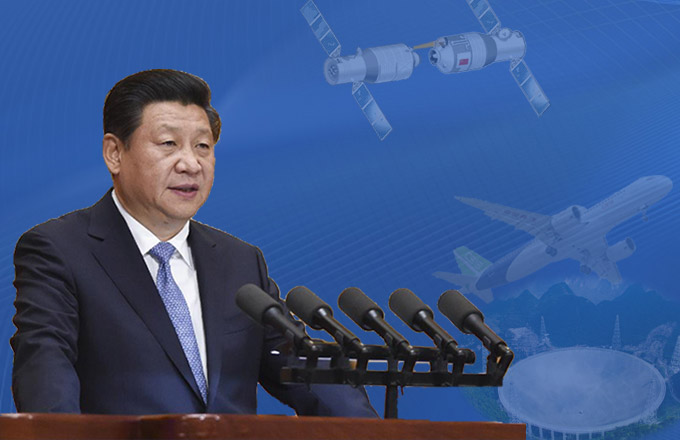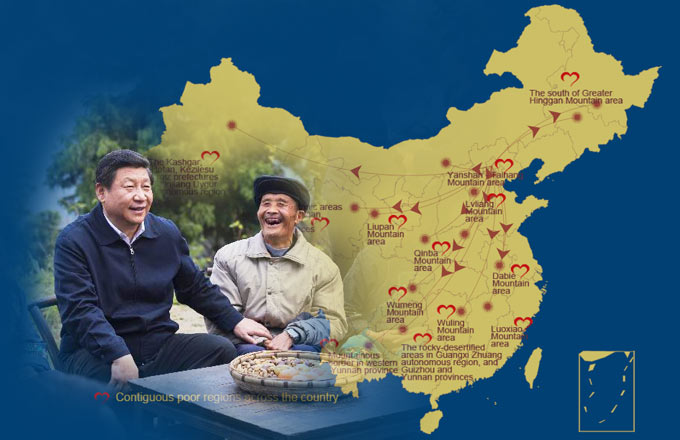China rejects US claim it ignores 'rules-based order'
Related stories:
China defender of international, regional rules: senior Chinese military official
Chinese, Russian officials laud bilateral military ties
Senior Chinese military official calls for enhanced strategic mutual trust between China, US
China dismissed allegations from the United States that it disregards "rules-based order" in the South China Sea, saying it honors and safeguards international and regional rules that represent the interests and consensus of most regional nations.
Lieutenant General He Lei, vice-president of the People's Liberation Army Academy of Military Science, told reporters Saturday on the sidelines of the ongoing Shangri-La Dialogue in Singapore that international rules must be recognized by most nations in the world and must be in the interests of those nations, and regional rules must match the interests of most countries in the region.
"China has signed more than 23,000 bilateral agreements and more than 400 multilateral agreements. We're a member of all UN committees," He said. "We're a good example when it comes to abiding by, supporting and safeguarding international and regional rules."
The lieutenant general is head of the Chinese delegation to this year's Shangri-La Dialogue that is being held over the weekend in Singapore. The event, also called the 16th Asia Security Summit and held by the London-based think tank International Institute for Strategic Studies, is being attended by 22 ministerial-level delegates and 12 chiefs of defense departments, as well as senior military officials and academics from 39 countries and regions.
He's remarks came in response to words from US Secretary of Defense James Mattis, who said in his speech delivered at the opening ceremony of this year's Shangri-La Dialogue on Saturday morning that the US "cannot accept Chinese actions that impinge on the interests of the international community, undermining the rules-based order that has benefited all countries" in the Asia-Pacific.
Mattis said the US "remains committed to protecting … the ability of countries to exercise those rights in the strategically important east and south China seas", adding his nation will continue to fly, sail, and operate "wherever international law allows" and will demonstrate resolve through "operational presence in the South China Sea and beyond".
Lieutenant General He said that it is not right for some nations to unilaterally determine and define international and regional rules and that the freedom of navigation should not be translated into military close-in reconnaissance.
"There's no so-called freedom of navigation issue in the South China Sea, as you can see that addresses by the Australian prime minister as well as Australian and French defense ministers did not say they have problems with this regard," He said. "However, the use of military aircraft and warships to conduct reconnaissance in waters and air near our territorial islands and reefs does not fall into the category of freedom of navigation, so China firmly opposes such actions."
The Chinese official mentioned that the draft framework of the South China Sea Code of Conduct, which was recently approved by China and ASEAN countries, and the Declaration on the Conduct of Parties in the South China Sea signed by the two sides in 2002 represent the consensus and common interests in the region.
Lieutenant General He also said China highly values its ties with the US and if the two sides could avoid conflicts and confrontations, honor mutual respect and cooperation and foster strategic trust, as well as improve control on crisis and risks, they will definitely have better relations and contribute more to regional and global stability and prosperity.
Zhao Xiaozhuo, director of the Center of China-US Defense Relations Studies of the PLA Academy of Military Science, said defense officials from some Western nations have been deliberately equating China's efforts to safeguard its sovereignty and interests in the east and south China seas to compromising "rules-based order" and neglect China's contributions to safeguarding international and regional rules.
He said interference from nations outside the region will not help resolve disputes, adding that it is China that keeps honoring and maintaining rules and sticks to peaceful settlement of disputes in the region.
Related Stories
- Chinese, Russian officials laud bilateral military ties
- Senior Chinese military official calls for enhanced strategic mutual trust between China, US
- China defender of international, regional rules: senior Chinese military official
- China strongly opposes US arms sales to Taiwan: senior military officer
- China rejects US claim it ignores 'rules-based order'
- Chinese, Russian officials laud bilateral military ties
- 5-magnitude quake hits Inner Mongolia: CENC
- Senior Chinese military official calls for enhanced strategic mutual trust between China, US
- China defender of international, regional rules: senior Chinese military official
Editor's picks


















